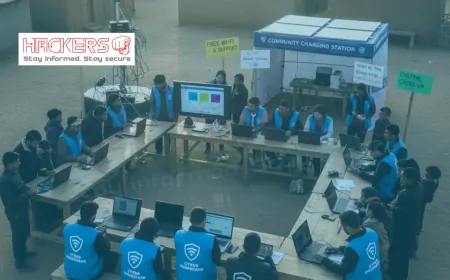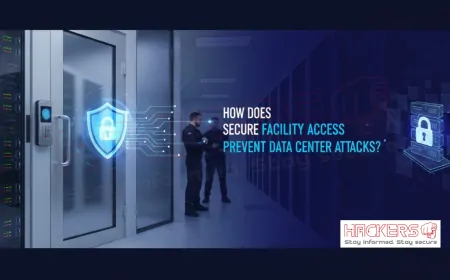How Do RHCE Professionals Manage Firewalls, SELinux, and Security Policies?
Imagine your Linux server as a high-security vault, holding critical data that cyber attackers are itching to breach. In 2025, with threats like ransomware and zero-day exploits growing smarter, securing these systems is a top priority. That’s where Red Hat Certified Engineer (RHCE) professionals shine. Building on the foundational skills of RHCSA, RHCE equips IT pros with advanced tools to manage firewalls, SELinux, and security policies, ensuring servers stay locked down tight. These skills aren’t just technical—they’re strategic, enabling pros to automate defenses and scale security across enterprise systems. In this blog, we’ll break down how RHCE professionals use these tools to safeguard Linux environments, using simple language to make it clear for beginners and seasoned admins alike. Let’s explore how RHCE transforms you into a cybersecurity powerhouse.

Table of Contents
- What is RHCE?
- Why Firewalls, SELinux, and Security Policies Matter
- Managing Firewalls with RHCE Skills
- Mastering SELinux in RHCE
- Implementing Security Policies
- Automation’s Role in Security Management
- RHCE vs. Other Certifications
- Why Choose Webasha for the Course
- Conclusion
- FAQs
What is RHCE?
The Red Hat Certified Engineer (RHCE) is an advanced certification from Red Hat, a leader in open-source software. It builds on the Red Hat Certified System Administrator (RHCSA), which covers basic Linux administration, and dives into complex skills like automation, networking, and security. Linux, for the uninitiated, is an open-source operating system think of it like Windows but customizable and widely used in servers and clouds for its reliability.
RHCE, tested through the EX294 exam, is hands-on. You perform real tasks, like automating firewall rules or configuring SELinux, on a live system. It assumes you’ve mastered RHCSA or have equivalent experience, making it ideal for those with some Linux know-how. The certification focuses on Red Hat Enterprise Linux (RHEL), a staple in enterprise IT. For a deep dive into the exam, check out this RHCE exam guide from Webasha.
For security, RHCE is a game-changer. It teaches you to manage firewalls, SELinux, and policies at scale, crucial for protecting large systems. The certification lasts three years, keeping you current in a fast-evolving field.
Why Firewalls, SELinux, and Security Policies Matter
In cybersecurity, firewalls, SELinux, and security policies are like the walls, guards, and rulebook of a fortress. Firewalls control network traffic, deciding what’s allowed in or out. SELinux (Security-Enhanced Linux) adds strict access controls, limiting what processes can do even if a hacker sneaks in. Security policies are the overarching rules, ensuring consistent protection across systems.
In 2025, cyber threats are relentless think ransomware locking data or exploits targeting open ports. Linux servers, powering most web and cloud platforms, are prime targets. Without proper management, a single misconfiguration can lead to breaches costing millions. RHCE professionals use these tools to harden systems, ensuring compliance with standards like GDPR and staying ahead of attackers.
Managing Firewalls with RHCE Skills
Firewalls act like gatekeepers, filtering network traffic to block unauthorized access. RHCE trains you to manage advanced firewall configurations using tools like firewalld and iptables, ensuring robust protection.
- Zones and Services: RHCE teaches you to use
firewalldzones (like public or trusted) to set rules based on network trust levels. For example, you allow HTTP traffic on port 80 for a web server but block unused ports. - Custom Rules: Create specific rules, like
firewall-cmd --add-port=22/tcp, to allow secure SSH access while blocking others, stopping hackers from probing vulnerabilities. - Rich Rules: Set advanced policies, such as allowing traffic from specific IP addresses only, enhancing precision in enterprise networks.
- Automation Integration: Use Ansible to apply firewall rules across multiple servers, ensuring consistency and speed.
These skills help RHCE pros block attacks like denial-of-service (DoS), where hackers flood servers to crash them. By mastering firewalls, you create a strong first line of defense.
Mastering SELinux in RHCE
SELinux is a powerful security module in Linux that enforces mandatory access controls, limiting what processes or users can do. RHCE takes SELinux beyond RHCSA’s basics, teaching advanced management for enterprise security.
- Policy Customization: Use
setseboolorsemanageto tailor SELinux policies, like allowing a web server to access specific files without compromising security. - Context Management: Assign SELinux contexts to files and processes (e.g.,
chcon) to ensure only authorized actions occur, preventing exploits like privilege escalation. - Troubleshooting: Analyze SELinux logs with
audit2allowto fix denials, balancing security and functionality. - Automation: Automate SELinux configurations with Ansible, applying policies across servers efficiently.
This expertise stops attackers who gain initial access from causing widespread damage, making SELinux a critical tool for RHCE pros in cybersecurity.
Implementing Security Policies
Security policies are the rulebook for consistent system protection. RHCE trains you to implement and enforce these across complex environments.
- Standardized Configurations: Use Ansible playbooks to enforce policies, like requiring strong passwords or disabling unused services, across all servers.
- Compliance: Ensure systems meet standards like PCI-DSS by configuring audit logs and access controls systematically.
- Role-Based Access: Implement policies restricting access based on user roles, using tools like
sudofor elevated permissions. - Monitoring and Auditing: Set up tools like
auditdto track policy violations, ensuring quick response to non-compliance or threats.
RHCE’s focus on automation ensures policies are applied consistently, reducing human error in large-scale systems. For real-world applications, see this RHCE success story on Webasha.
Automation’s Role in Security Management
Automation, a core RHCE skill via Ansible, is a game-changer for security. Managing hundreds of servers manually is slow and error-prone, but automation ensures speed and consistency.
- Rapid Deployment: Apply firewall rules or SELinux policies instantly across systems with Ansible playbooks.
- Error Reduction: Automated scripts eliminate mistakes, like forgetting to close a port.
- Scalability: Manage security for thousands of servers as easily as one, critical for enterprises.
- Incident Response: Automate responses, like isolating a compromised server, to minimize damage during attacks.
For advanced security admins, automation is essential to keep up with 2025’s fast-moving threats. RHCE’s Ansible training makes you a master at it.
RHCE vs. Other Certifications
How does RHCE compare to other security-focused certs like CISSP or AWS Certified Security? Here’s a table:
| Aspect | RHCE | CISSP | AWS Certified Security |
|---|---|---|---|
| Focus | Linux security, automation | Broad cybersecurity | AWS cloud security |
| Exam Style | Hands-on, performance-based | Multiple-choice | Multiple-choice |
| Security Depth | Deep Linux firewall/SELinux | Broad, less technical | Cloud-specific |
| Prerequisites | RHCSA or equivalent | 5 years experience | AWS knowledge |
| Best For | Linux security admins | Security managers | Cloud security pros |
RHCE’s hands-on Linux focus makes it ideal for managing firewalls and SELinux in enterprise settings. For more on its value, read this Red Hat certification guide.
Why Choose Webasha for the Course
Mastering RHCE requires quality training, and Webasha Technologies is a standout choice, especially in India. With a proven track record of training thousands, Webasha offers RHCE courses with hands-on labs that mirror the EX294 exam. Their expert instructors simplify complex topics like Ansible and SELinux, making them accessible even for those new to advanced Linux.
Webasha provides flexible learning options—online, classroom, or bootcamps—along with affordable pricing and job placement support. Their focus on practical skills ensures you’re ready to manage enterprise security. For prep tips, check their RHCE exam tips blog. Webasha is your partner for becoming an RHCE security pro.
Conclusion
RHCE professionals are cybersecurity maestros, using advanced skills to manage firewalls, SELinux, and security policies with precision. In 2025, as cyber threats grow more complex, their ability to automate defenses and secure large-scale Linux systems is invaluable. From configuring robust firewalls to customizing SELinux and enforcing policies, RHCE equips you to protect enterprise environments effectively. Whether you’re advancing from RHCSA or aiming for a top-tier security role, RHCE is a must. Ready to master these skills? A course with Webasha can set you on the path to securing the digital world.
FAQs
What is RHCE?
RHCE is an advanced certification focusing on Linux automation, networking, and security, building on RHCSA.
How do RHCE pros manage firewalls?
They use firewalld to set zones, custom rules, and automate configurations for secure network traffic.
What is SELinux in RHCE?
SELinux is a security module for mandatory access controls, customized in RHCE to prevent unauthorized actions.
How are security policies enforced?
Using Ansible to apply consistent rules, like password policies or access controls, across systems.
Why is automation key in RHCE?
It ensures rapid, consistent security configurations, reducing errors in large environments.
Does RHCE require RHCSA?
Yes, RHCSA or equivalent experience is a prerequisite.
Can RHCE stop cyber attacks?
Yes, by configuring firewalls and SELinux to block threats like DoS or exploits.
What jobs use RHCE for security?
Security Engineer, DevSecOps, or Cloud Security Architect roles.
How long is RHCE prep?
Typically 6-12 months post-RHCSA, depending on experience.
Is the RHCE exam hands-on?
Yes, it tests real tasks like automating firewall rules.
Why focus on Linux for security?
Linux powers most servers and clouds, requiring strong security skills.
Can RHCE help with cloud security?
Yes, its skills apply to Linux-based clouds like AWS.
What is Ansible in RHCE?
Ansible is an automation tool for applying security configurations across servers.
Does RHCE expire?
Yes, after three years; renew via exams or credits.
How does RHCE compare to CISSP?
RHCE is hands-on and Linux-focused; CISSP is broader and theoretical.
Is RHCE recognized globally?
Yes, Red Hat certifications are valued worldwide.
Can RHCE improve incident response?
Yes, automation speeds up responses like isolating compromised systems.
Is RHCE suitable for beginners?
No, it’s advanced; start with RHCSA for basics.
Why are firewalls critical?
They block unauthorized traffic, protecting servers from attacks.
Why choose Webasha for RHCE?
Webasha offers expert-led, hands-on training with job support, ideal for security pros.
What's Your Reaction?










































































